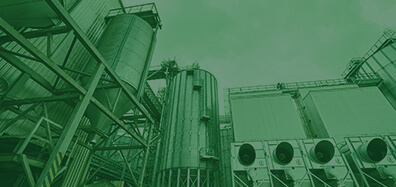Ozone O3 Sensor 50 PPM

Ozone O3 sensor and monitoring systems from Prana Air are the best in their class and may be used to precisely and accurately calculate the area’s ozone concentration. The main defence against ozone’s harmful effects on our health is monitoring. Industry-wide, electrochemical sensors are used to measure ozone. The amount of ozone in the air is detected with this sort of sensor by measuring the electric current generated by the reaction of the gas sample with the electrolyte. An electric current that is proportional to gas concentration was produced by the electron’s direction of flow.
The stratosphere of the atmosphere contains a layer called ozone. The ozone layer shields the earth from dangerous UV radiation entering the atmosphere. But the ozone layer we breathe on the earth is dangerous. Three oxygen atoms make up ozone gas, which ranges in hue from colourless to pale blue. Ozone has a strong, extremely flammable stench. Ozone layer breakdown is the main cause of ozone presence at ground level. Construction, power plants, oil extraction and use, industrial boilers, chemical plants, burning of coal, and gasoline combustion are some more sources. Its monitoring not only aids in establishing the quality of the air but also serves as a warning when an excessive amount of something is present that shouldn’t be.

The sensor’s small size enables its application in both stationary and portable handheld devices.

The lifespan of the ozone sensor is ten years.

The sensor responds in less than 15 seconds and is quite quick.

The sensor has a very low energy need (0 mW at 0 mV bias). As a result, less energy is used overall.

For the utmost accuracy, calibration is done on an individual basis for each sensor-equipped device.

The sensor’s compliance with ROHS (Restriction of Hazardous Substances) regulations explains why no poisonous or hazardous ingredients were used in the manufacturing of the sensor.
Prana Air offers ozone sensors that use electrochemical gas detecting methods. The three main components of the method are an ion conductor, a working electrode, and a counter electrode. A bridge connecting two electrodes is the ion conductor. The creation of current between electrodes caused by the passage of gas via the sensor is directly correlated with the ambient ozone concentration.
An electric current that is directly inversely correlated with the gas concentration is produced by the directional flow of electrons via the wire. By detecting the current flow between the two sensors, the gas sensor operates.

The instrument accuracy and measurement traceability are determined by the sensor calibration. Calibration involves comparing standard measurement to an instrument. The sensor is exposed to O3 in the desired range while being compared to the NIST standard. During calibration, standard environmental parameters including 23 + 3 °C temperature, 50 + 15% relative humidity, 0.9-1.1 atm pressure, and 0.05 m/s air velocity were used.


| Parameter | Value |
|---|---|
| Lower detection limit | 50 ppm |
| Resolution | 0.01 ppm |
| Repeatability | < +/- 3 % of reading |
| Response Time | Less than 15 seconds |
| Sensitivity (nA/ppm @ 5ppm) | -60 +/- 10 nA/ppm |
| Expected Operating Life | > 5 years (10 years @ 23+/-3C; 40+/-10% RH) |
| Operating Temperature Range | -300 to +500C |
| Working Humidit | 0-100% RH |
| Power Supply | 10-50 uW |

Air Quality
Monitoring

Industrial Safety
Monitoring

Air Purification
Control
The user has to option to choose either the sensor only or both sensor and board. Prana Air has a USB digital board with a microcontroller.
The standard environmental conditions for sensor calibration used are 23 + 3oC temperature, 50 + 15% relative humidity, 0.9-1.1atm pressure and air velocity of 0.05m/s. The alteration in environmental conditions may affect the sensitivity of the sensor but is easily compensated.
The sensor has 6 months warranty only on the manufacturing devices.
The sensor has to be connected through a USB microcontroller and digital board to UART Bridge.
Ozone is both an air pollutant and Green House gas. The depletion of the protective ozone layer is causing the increased heating of the earth’s surface. The ground-level ozone is formed due to a photochemical reaction between VOCs and NOx in presence of heat and sunlight.
Use Prana Air’s monitors to continuously monitor the levels of ozone, avoid spending too much time outside when the concentration is high, and avoid continuous travel and trips.
According to NIOSH and OSHA, the recommended limit of exposure is 0.1ppm or 0.2 mg/m3. However, the levels higher than or equal to 5ppm are considered hazardous and dangerous to life. (NIOSH).
Adverse effects of ozone exposure can include severe lungs infection attacking the neural, epithelial, and immune cells, eye irritation, conjunctivitis, inflammation in tissues of the lungs, and reduced inability to breathe.
Ozone levels elevate in the afternoon because the exhausted fumes from the morning rush hour have reacted with sunlight. People working in power points, industrial boilers, oil and petroleum refinery, and chemical plants are exposed to a high level of ozone.
Please help us know what requirements you have.
Our team will contact you very soon.
Looking for Ozone sensor?